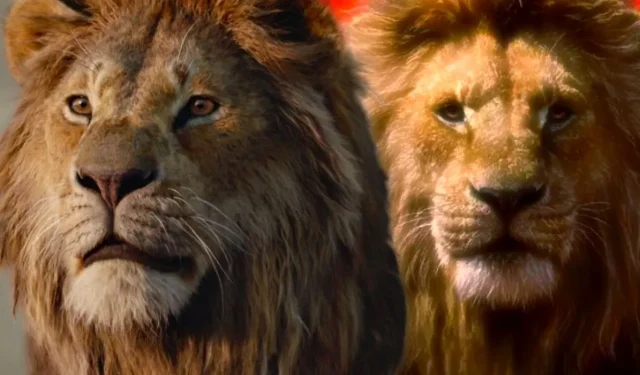
Warning! This article contains SPOILERS for Mufasa: The Lion King
Exploring the Evolution of Kingship in The Lion King Saga
The recent prequel, Mufasa: The Lion King, sheds light on a significant shift in leadership between Mufasa and his son Simba. Set to be released in 2024, the film unveils the backstories of both Mufasa and his brother Scar, detailing their first encounter and what fueled Scar’s resentment as they matured. These elements highlight the contrasting leadership styles of Simba and Mufasa, particularly regarding Scar and his impact on their reigns.
The Climactic Battle and Its Aftermath
At the conclusion of Mufasa: The Lion King, Mufasa valiantly conquers Kiros and his Outsiders, earning the rightful title of king of the Pride Lands. This is particularly poignant considering that this throne was originally deemed to belong to Taka, who would later become known as Scar. Following Taka’s betrayal, Mufasa faces an agonizing choice—one that foreshadows his son Simba’s own decisions during his reign.
Mufasa vs. Simba: Leadership Decisions in the Face of Betrayal
In the new narrative, Taka’s feelings of bitterness stem from Sarabi’s preference for Mufasa, which ultimately drives Taka to betray Mufasa by joining forces with Kiros. Interestingly, during the early conflict with the Outsiders, Taka experiences a moment of regret, indicating his complex emotions towards his brother.
Mufasa, faced with the decision to banish Taka, instead chooses compassion, allowing Scar to remain close as a reminder of his wrongs. This decision, however, creates a lasting cycle of animosity that plays out tragically in their future encounters.
The Choices That Define Kingship
The Difficult Decision: To Ban or Not to Ban
In contrast, Simba is tasked with a similar crisis after Scar’s defeat. As depicted in The Lion King II: Simba’s Pride, Simba faces a faction loyal to Scar, led by the fierce lioness Zira. Choosing to banish these supporters creates a new exiled group that lives outside the Pride Lands. Simba’s decision sets a different tone for leadership—one focused on ensuring safety and severing ties with a dangerous past.
Understanding Mufasa’s Choices
A Bond Beyond Betrayal
Mufasa’s reluctance to banish Scar stems from their deep-rooted brotherly bond; despite Scar’s betrayal, Mufasa’s sense of obligation remains strong. Taka, having saved Mufasa’s life twice, elicited a loyalty that clouded Mufasa’s judgment, rendering him blind to the enduring resentment that festered within Scar. This ultimately led to dire consequences, including Mufasa’s tragic demise during the wildebeest stampede.
Simba’s Pivotal Choice
A Lesson from the Past
Simba’s choice mirrors his father’s dilemma but is ultimately guided by different principles. After Scar’s reign of oppression, Simba recognizes that radical action is necessary to protect the Pride Lands. Interestingly, his decision to banish Scar’s followers reflects an understanding that justice may sometimes necessitate difficult choices.
Ultimately, through the efforts of Simba’s daughter, Kiara, and Scar’s successor, Kovu, the two factions find reconciliation, illustrating that forgiveness is achievable even after profound betrayal.
Legacy of Leadership: Justice and Mercy
Balancing Justice and Forgiveness
Though their leadership styles differ markedly, both Mufasa and Simba are portrayed as great kings in their own right. Mufasa’s mercy towards Scar is reflective of his larger-than-life spirit, whereas Simba’s tough decisions signify a resolve to protect his reign from similar threats. Simba’s eventual openness to reunite the scattered pride shows an ability to adapt, marking a significant evolution in leadership values.
In essence, both kings demonstrated justice and mercy in their tenures over the Pride Lands. The recent Mufasa: The Lion King prequel compellingly illustrates the parallels between father and son, inviting audiences to reflect on the traits that make a true leader.
Mufasa: The Lion King is currently showing in theaters.




Leave a Reply